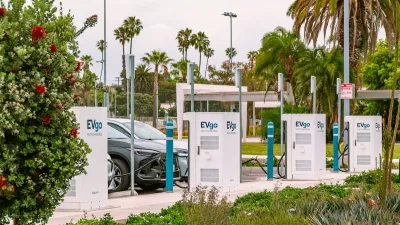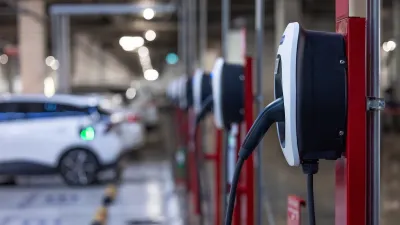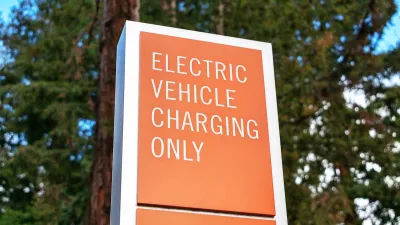The automaker has announced plans for a fully-electric vehicle by 2010, and says it wants to lead the industry towards zero-emission vehicles.
"The Nissan Motor Company plans to sell an electric car in the United States and Japan by 2010, raising the stakes in the race to develop environmentally friendly vehicles.
The commitment - expected to be announced Tuesday by Nissan's chief executive, Carlos Ghosn - will be the first by a major automaker to bring a zero-emission vehicle to the American market. Nissan also expects to sell a lineup of electric vehicles globally by 2012.
In an interview Monday, Mr. Ghosn said Nissan decided to accelerate development of battery-powered vehicles because of high gasoline prices and environmental concerns, not just because of the need to meet stricter fuel-economy standards."
"Mr. Ghosn declined to disclose details of the electric products and said initial quantities would be small. "We're talking about hundreds of vehicles first," he said.
But he said that the company was determined to achieve "zero-emission-vehicle leadership."
With customers in emerging markets like China and India clamoring for cars, the industry has a responsibility to invest in the cleanest vehicles possible, he said, adding, "The question is how we participate in the growth of emerging markets, while doing it in a way that is not in contradiction with the fact that a lot of people are sensitive to the emission levels and the preservation of the planet.""
FULL STORY: Nissan Plans Electric Car in U.S. by ’10

Manufactured Crisis: Losing the Nation’s Largest Source of Unsubsidized Affordable Housing
Manufactured housing communities have long been an affordable housing option for millions of people living in the U.S., but that affordability is disappearing rapidly. How did we get here?

Americans May Be Stuck — But Why?
Americans are moving a lot less than they once did, and that is a problem. While Yoni Applebaum, in his highly-publicized article Stuck, gets the reasons badly wrong, it's still important to ask: why are we moving so much less than before?

Research Shows More Roads = More Driving
A national study shows, once again, that increasing road supply induces additional vehicle travel, particularly over the long run.

Judge Halts Enforcement of Anti-Homeless Laws in Grants Pass
The Oregon city will be barred from enforcing two ordinances that prosecute unhoused residents until it increases capacity and accessibility at designated camping sites.

Advancing Sustainability in Los Angeles County Schools
The Los Angeles County Office of Education’s Green Schools Symposium brings together educators, students, and experts to advance sustainability in schools through innovative design, climate resilience strategies, and collaborative learning.

Using Old Oil and Gas Wells for Green Energy Storage
Penn State researchers have found that repurposing abandoned oil and gas wells for geothermal-assisted compressed-air energy storage can boost efficiency, reduce environmental risks, and support clean energy and job transitions.
Urban Design for Planners 1: Software Tools
This six-course series explores essential urban design concepts using open source software and equips planners with the tools they need to participate fully in the urban design process.
Planning for Universal Design
Learn the tools for implementing Universal Design in planning regulations.
City of Moreno Valley
Institute for Housing and Urban Development Studies (IHS)
City of Grandview
Harvard GSD Executive Education
NYU Wagner Graduate School of Public Service
City of Cambridge, Maryland
Newport County Development Council: Connect Greater Newport





























